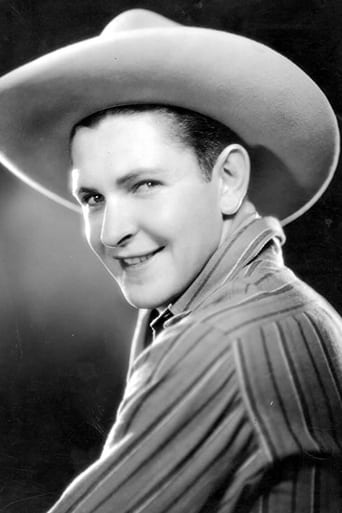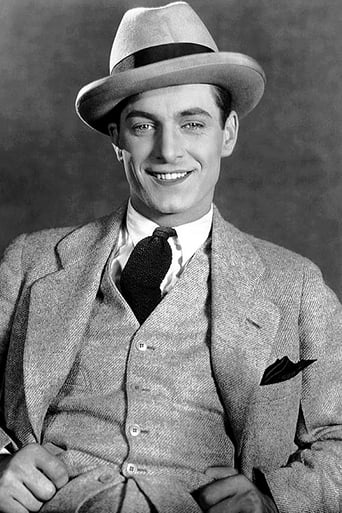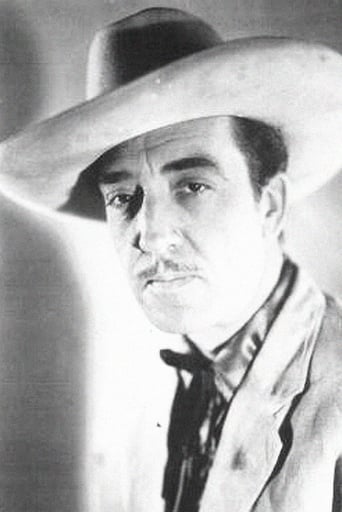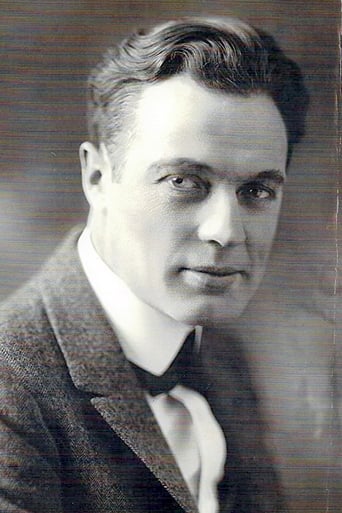zardoz-13
Never was a portrait of evil more striking than the villainous Apache Joe (Ted Adams of "Outlaw Country") in director Sam Newfield's swiftly-paced, standard-issue, B-movie western "Desert Patrol" (7/10) starring Bob Steele, with Marion Weldon, Rex Lease, and Forrest Taylor. Apache Joe is a bloodthirsty, half-breed dastard dressed in black with a black mustache. No, he doesn't preside over the villains. Instead, he serves as the top villain's second-in-command. He loves to describe the authorities for whom he has nothing but contempt as 'law dogs.' He tangles with our hero for the entire length of "Desert Patrol," and everything culminates in a knockdown, drag-out brawl between Adams and Steele. Apache Joe makes a worthy antagonist.This lean 56-minute law & order revenge oater takes place in Texas in 1938. Were it not for the glimpses of an antiquated wall mounted telephone and a vintage automobile, you'd think it was set during frontier times. Nevertheless, references to modern times are held to a minimum so that it doesn't overshadow the frontier-like flavor of the action. For example, everybody packs old West six-shooting revolvers. Bob Steele toplines as sharp-shooting, fist-fighting Texas Ranger Dave Austin. Apache Joe and his gang capture Texas Ranger Tim Carson on the prowl for them late one evening in the sagebrush. They take Carson back to their hideout out where they make things extremely uncomfortable for him. Later, after this scene, when he reports to the local district Texas Ranger Captain (Steve Clark of "Six Gun Mesa"), David Austin learns that his partner Tim suffered a horrible death at the hands of the villains. Insurance broke Martin Rand (Forrest Taylor) has been operating a smuggling outfit with Apache Joe and lily-livered rancher Dan Drury (Rex Lease of "Rough Riding Stranger") acts as their go-between. Originally, Austin and Carson were going to take a vacation together, but Austin decides to use his free time to find Carson's killers. Austin plans to masquerade as an outlaw and infiltrate Joe's gang, so that he can find out who killed his friend and expose the villain. Three Rangers chase Austin and he drives them away with his fancy shooting. Apache Joe watches this display of marksmanship and extends an offer to Austin to join his gang at their hideout. Austin's best-laid plans, however, go awry. Earlier, when he arrived in the area, he ran into his old friend Hezi Watts (Budd Buster of "Thundering Gun Slingers") as Watts was driving a wagon back to Dan Drury's ranch with Manhattan expatriate Jean Drury (Marion Weldon of "The Colorado Kid") dressed up like the Easterner riding alongside of him. Jean is Dan Drury's sister who has just finished college back east and is coming home to live with him. Along the way, Hezi stops at a neighbor's ranch to deliver some groceries, and Austin rides up and meets Jean. Jean has refused to move from the wagon, and she regrets that attitude when the horses panic and the wagon careens out of control into the sagebrush. Austin hurls himself thwart his Cayuse and pursues the runaway wagon. Eventually, he catches the team and brings the wagon to a halt. Hezi explains to Jean that Austin is a range rider, meaning that he rides the range. Jean doesn't have a clue about what this means. This foreshadows a twist that occurs later on in the movie.Austin saves Dan Drury's life when Apache Joe tries to knife in at the shack. Later, Drury hires Austin as a cowhand to increase his odds of survival against misadventure at the hands of Joe. Earlier, Drury had failed to persuade Rand earlier to let him quit the smuggling outfit; Rand holds the threat of Apache Joe over Drury's head. Drury wants out of this mischief on account of his sister coming to live with him, but Rand refuses to let him off the hook. During this part of the plot—its' second act—Jean takes a shine to Austin. Austin runs into Martin Rand at the Drury Ranch. The stuck-up Rand is lovesick on Jean. When he rides in, he orders Hezi to change a shoe on his horse. Hezi explains to Austin that Rand is a snake with a lot of influence around those parts. Austin takes a personal interest in the insurance broker and earmarks the horseshoe that he puts on the chief villain's horse so that he can track him. This is pretty sharp of our resourceful hero. Later, he pulls essentially the same stunt when he marks a bankroll that Drury has to pass along to Rand. Austin does this to incriminate the bad guy. In the long run, Austin breaks up the smuggling ring, clears Dan of wrong-doing, arrests Apache Joe, and wins the gal! Director Sam Newfield leaves the grisly details of "Desert Patrol's" most intense scene to your imagination. Apache Joe wields a knife, cuts off Carson's badge, and then slices a button off of the Ranger's shirt. Dan Drury turns his head away in disgust as Joe begins to carve away at Carson. Later, when he holes up with Joe's gang to enjoy some grub, Austin spots the bloodied wall and floor and recognizes this as the place where his friend died. Nothing else in "Desert Patrol" has the intensity of the torture scene. Of course, the Hollywood-based self-censorship agency the Production Code Administration would never have let the filmmakers depict Carson's gruesome demise on camera. Nevertheless, the peripheral references to Carson's torture and death remain undeniably powerful stuff. Prolific scenarist Fred Myton provides some tasty often literate dialogue, especially Jean's lines. Myton penned some 169 film scripts during his career between 1915 and 1952. The Alpha Video version of "Desert Patrol" is a bottom of the barrel print with inconsistent audio levels in the dialogue. Overall, "Desert Patrol"—which probably should have been called "Sagebrush Patrol"—is a tolerably entertaining B-movie opus.
krorie
One thing Bob Steele could do better than any other movie cowboy was fight. He was pint-sized but he could move fast and knock down bad guys twice as big as he was. In the showdown with Apache Joe, who did not like to be called a half-breed, Bob dukes it out in the hideout, just the two of them. When the other Rangers show up and are told to help Bob, the Captain replies to the effect, "Is it just the two of them in there? Then he don't need no help." Today Bob Steele is most remembered for his role as Lash Canino, a mobster, in Bogie's "The Big Sleep." But he was a scrapping cowboy hero to many a youngster in the 30's and 40's."Desert Patrol" begins with a Ranger being tortured to death by Apache Joe. Though the actual torture is not shown, there is little left to the imagination. He is sent back in pieces to Ranger headquarters. In steps Ranger Dave Austin (Bob Steele) to break up the outlaw gang involved in smuggling, but most of all to revenge his friend's death. Unfortunately one of the gang members happens to have a sister that Austin becomes struck on. So he is placed in a dilemma. He is undercover as a hired hand on the ranch of the gang member with the pretty sister. Hezi (Budd Buster), another hired hand, recognizes Austin but promises not to blow his cover. Hezi also attempts to provide the laughs in the movie. But most of his slapstick falls flat. Marion Weldon as Austin's love interest sounds as if she is reading her lines but does pick up steam toward the end when she learns that her brother is involved in crooked dealings and that Austin is in danger. She becomes a spitfire, knocks Martin Rand, the boss outlaw, down, and takes off to save Austin. Jack Ingram whose face appears in countless shoot-'em-ups does well in a small role early in his career as one of the henchmen.Even though the title of the film is "Desert Patrol," there is an abundance of trees and running water. Maybe this oater should have been called "Forest Patrol." All in all not a bad Saturday afternoon matinée feature, especially if you are a Bob Steele fan like me.




